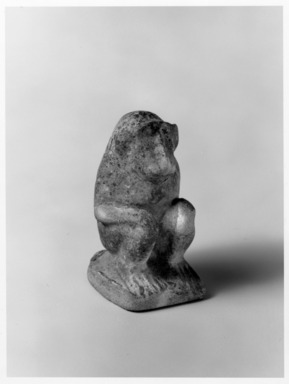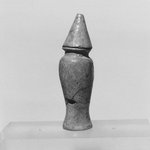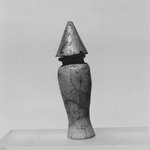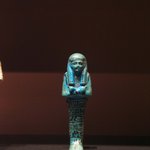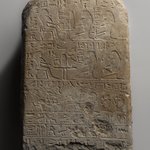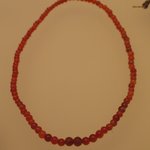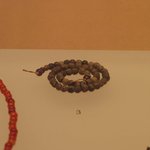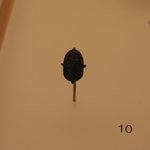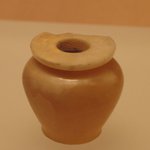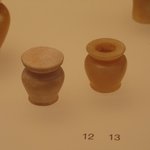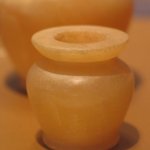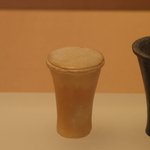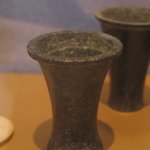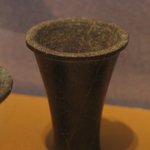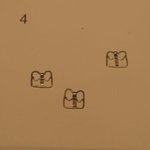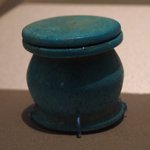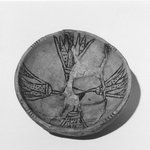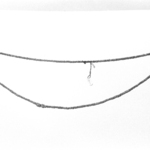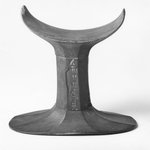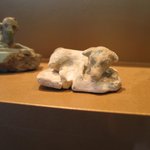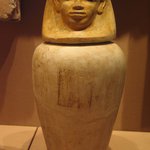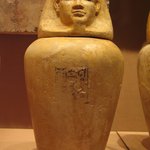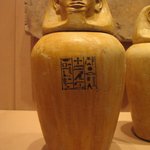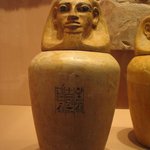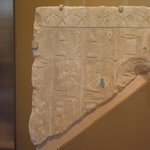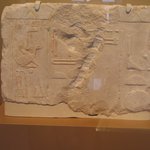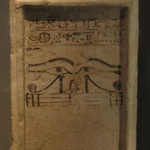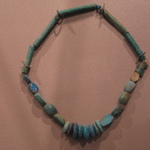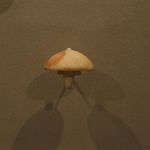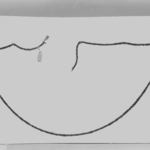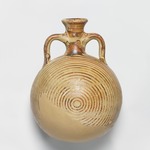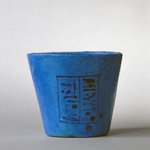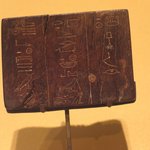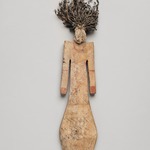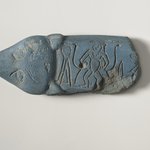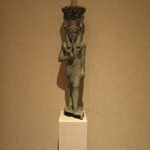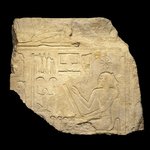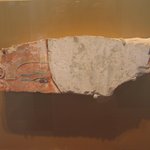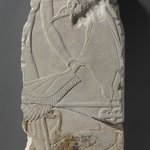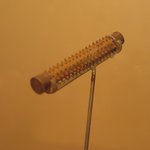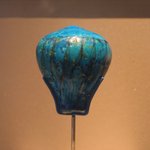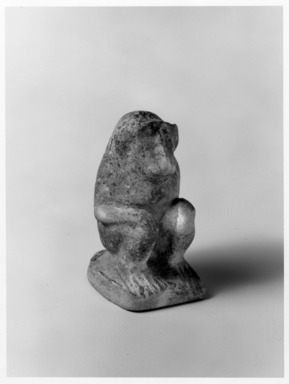

Baboon, ca. 1938–1700 B.C.E. Faience, 2 1/2 x 1 1/2 x 1 3/4 in. (6.4 x 3.8 x 4.4 cm). Brooklyn Museum, Charles Edwin Wilbour Fund, 59.199.3. Creative Commons-BY (Photo: , 59.199.3_print_bw_SL5.jpg)
Baboon
Egyptian, Classical, Ancient Near Eastern Art
On View: Old Kingdom to 18th Dynasty, Egyptian Galleries, 3rd Floor
Baboons warm their stomachs by sitting up, raising their paws, and facing the sun each morning, a behavior the Egyptians interpreted as solar worship. Baboon figures were included in burials to assist in the deceased’s rebirth. Wild baboons had all but disappeared from around the Nile Valley by the Middle Kingdom, when this figure was made. Female baboons were placid enough to be domesticated and kept as pets, but they had to be imported at great cost from central Africa, making them exotic luxuries and conspicuous status symbols.
MEDIUM
Faience
DATES
ca. 1938–1700 B.C.E.
DYNASTY
Dynasty 12 to early Dynasty 13
PERIOD
Middle Kingdom
DIMENSIONS
2 1/2 x 1 1/2 x 1 3/4 in. (6.4 x 3.8 x 4.4 cm)
(show scale)



COLLECTIONS
Egyptian, Classical, Ancient Near Eastern Art
ACCESSION NUMBER
59.199.3
CREDIT LINE
Charles Edwin Wilbour Fund
CATALOGUE DESCRIPTION
Faience statuette of seated cynocephalus ape in conventional pose, hands on knees, frontal. Base has rounded back. Remains of a blue-green glaze.
Condition: Only scattered patches of glaze remain. Left hand of ape worn.
EXHIBITIONS
MUSEUM LOCATION
This item is on view in Old Kingdom to 18th Dynasty, Egyptian Galleries, 3rd Floor
CAPTION
Baboon, ca. 1938–1700 B.C.E. Faience, 2 1/2 x 1 1/2 x 1 3/4 in. (6.4 x 3.8 x 4.4 cm). Brooklyn Museum, Charles Edwin Wilbour Fund, 59.199.3. Creative Commons-BY (Photo: , 59.199.3_print_bw_SL5.jpg)
IMAGE
overall, Neg A; source material provided by curitorial dep, 59.199.3_print_bw_SL5.jpg., 2017
"CUR" at the beginning of an image file name means that the image was created by a curatorial staff member. These study images may be digital point-and-shoot photographs, when we don\'t yet have high-quality studio photography, or they may be scans of older negatives, slides, or photographic prints, providing historical documentation of the object.
RIGHTS STATEMENT
Creative Commons-BY
You may download and use Brooklyn Museum images of this three-dimensional work in accordance with a Creative Commons license. Fair use, as understood under the United States Copyright Act, may also apply.
Please include caption information from this page and credit the Brooklyn Museum. If you need a high resolution file, please fill out our online application form (charges apply).
For further information about copyright, we recommend resources at the United States Library of Congress, Cornell University, Copyright and Cultural Institutions: Guidelines for U.S. Libraries, Archives, and Museums, and Copyright Watch.
For more information about the Museum's rights project, including how rights types are assigned, please see our blog posts on copyright.
If you have any information regarding this work and rights to it, please contact copyright@brooklynmuseum.org.
RECORD COMPLETENESS
Not every record you will find here is complete. More information is available for some works than for others, and some entries have been updated more recently. Records are frequently reviewed and revised, and we welcome any additional information you might have.

